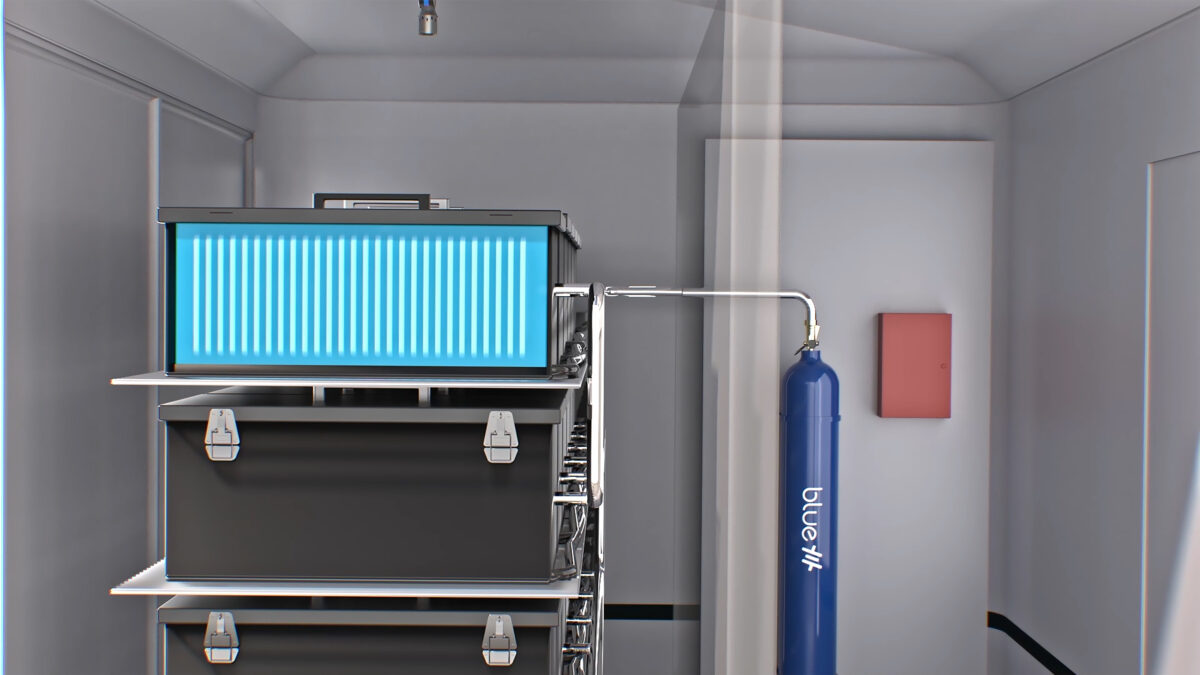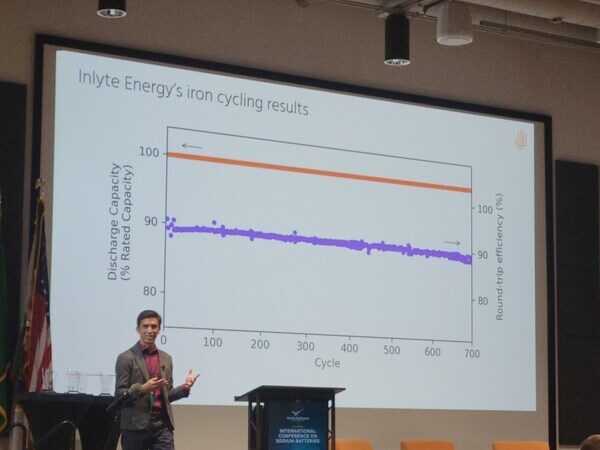Preventing thermal runaway – a rapid and dangerous release of heat and gases which can lead to fires in lithium-ion batteries – is the big conundrum plaguing both electric mobility and stationary storage industries. With battery thermal incidents a relatively new phenomenon, companies are wrapping their heads around suppression methods and the best ways of dealing with self-sustaining battery fires that are difficult to put out.
The latest company that claims to have found a solution to this issue is US-based Fike Corp. Its Fike Blue solution is billed as “the first tested and patented solution that not only suppresses the fire but also stops cascading thermal runaway.”
Fike has developed a tank with a liquid that has a boiling point of more than 400 C without breaking down. When a heat anomaly is detected, a releasing panel activates the cylinder to flow Fike Blue throughout the piping network. However, only in the module where the fire is located will the nozzle open and discharge the liquid, immersing the cells and absorbing the heat. The temperatures for all cells dramatically decrease over the course of several minutes until the event and chance for re-ignition is over.
Fike said it has various ways to detect thermal events in battery energy storage systems.
“Depending on the users' goals, we can use multiple detection options including industrial gas detection, Fike Distributed Temperature Sensing (DTS) cables, traditional spot detection, and more,” a company spokesperson told pv magazine.
Today, water-based fire suppression systems are touted as most effective at cooling a battery fire. However, while they can cool down the battery and help prevent the spread of fire, they cannot extinguish battery fires until the energy is dissipated and accompanied by the release of dangerous off-gases. The possibility of re-ignition is not eliminated.
Third-party testing by the Canadian Standards Association (CSA) showed that Fike Blue suppressed thermal runaway heat within five minutes, preventing further cell spread. While it has not specified the chemical composition of its agent, Fike said that its does not fall under the family of PFAS. It said its patented liquid can be stored for at least five years at 25 C without the formation of precipitates or sediment.
“Fike is the only safety solutions provider in the world who can perform a Battery Hazard Analysis (BHA) with Fike Blue, ensuring you’ll pass the UL 9540A test [test method for evaluating thermal runaway fire propagation in battery energy storage systems],” Fike said.
This content is protected by copyright and may not be reused. If you want to cooperate with us and would like to reuse some of our content, please contact: editors@pv-magazine.com.




By submitting this form you agree to pv magazine using your data for the purposes of publishing your comment.
Your personal data will only be disclosed or otherwise transmitted to third parties for the purposes of spam filtering or if this is necessary for technical maintenance of the website. Any other transfer to third parties will not take place unless this is justified on the basis of applicable data protection regulations or if pv magazine is legally obliged to do so.
You may revoke this consent at any time with effect for the future, in which case your personal data will be deleted immediately. Otherwise, your data will be deleted if pv magazine has processed your request or the purpose of data storage is fulfilled.
Further information on data privacy can be found in our Data Protection Policy.